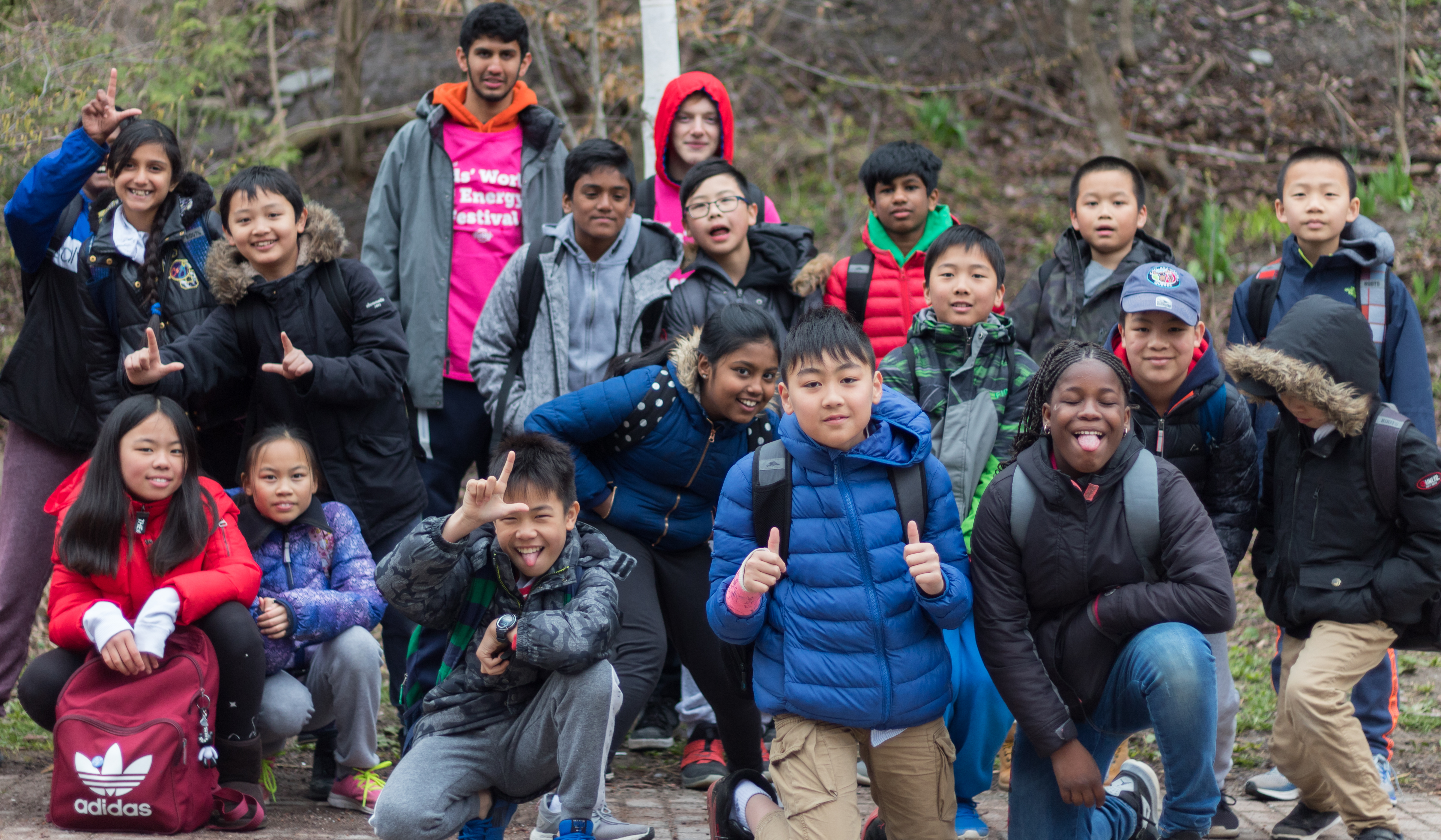Author: Andrew Cahill, Youth Programs Coordinator
Field trips are the best days to be a student. They provide an opportunity to get out of the daily school routine and take learning to new levels. Field Trips allow students to learn through exploration and hands-on experiences, while connecting to curriculum topics. But they can also be stressful to organize and lead. We’re here to help! Here’s our guide to planning the ultimate field trip based on our adventures in renewable energy education.
Tip 1: Build excitement for your trip!
Planning a simple activity focused on the topic your students will be exploring before their field trip will help to get them ready and excited. Many organizations may offer this already, so make sure to ask ahead of time. If you’re up for preparing this yourself, determining what your learning outcomes are will help you pick an appropriate pre-activity. Here’s some examples:
- Watch a short movie related to the topic
- Research significant people or relevant places
- Do a quiz on the topic
- Prep them for what they’ll be doing
- Get students to discuss in groups to predict about their trip experience (Who/What/Where/When/How) and share their predictions with the class. This can be a great way to follow-up after the activity and compare to their initial thinking.
Tip 2: Choosing your destination
When considering what field trip to choose, the number of options can feel overwhelming. We recommend creating a short list of your must-haves before choosing your trip, such as:
- indoor or outdoor
- max. cost per student
- how will we get there/back
- educational topic or focus
- value for experience
Using this list will help you determine whether to add a field trip to your options. Many teachers return to the same locations each year, but we believe it’s important to explore different opportunities for your out of school experiences. Using a list like the one above may show you new opportunities you may not have considered before.
Here at Relay Education, we provide two field trip opportunities focused on solar and wind energy. These field trips take place on the beautiful grounds of the Canadian National Exhibition (CNE) in Toronto, Ontario.
Both field trips include hands-on workshop, an outdoor tour of a renewable energy project at an affordable price of $150 per class, which works out to approx. $4-6 per student depending on number of kids in your class. There is a reduced rate if multiple classes attend at the same time.
Tip 3: Connecting to the curriculum
Learning from field trips doesn’t need to be limited to the day of the trip. Whether you’re using the field trip as an introduction or a wrap-up to your unit there’s many ways you can tie in the curriculum before and after. Here’s an article with examples of field trip lessons. All field trips should be connected to the curriculum, and most providers will help you identify which connections they make. Relay Education’s programs connect to many curriculum strands in the STEM topics, and we design our program content with this in mind. We make sure to hit the relevant grade links and more.
Tip 4: Checklists
To ensure a great field trip, a checklist is handy. Create a simple checklist, so everyone can remember to bring items such as:
- notebooks and pencils
- appropriate clothing and shoes
- litter-less lunches
- cameras/cellphone cameras
Teachers will also want to bring:
- directions to the location
- contact information for the field trip organizers
- payment for the field trip (if needed)
- attendance list and emergency contact info
Tip 5: Get involved in the learning
First get caffeinated (we’re kidding, but it helps us). Be as curious as your students. Harness their desire for asking questions to dive deeper into the subject with the facilitator during group discussion. Move amongst all the different groups and inquire about the learning your students are having. In our field trips we encourage teachers to watch and explore with the students during their experiments. We even welcome you trying them out yourself!
Don’t forget to find moments to enjoy in the day with your students, and your field trip memories will be as positive and long lasting as theirs.
By following these tips your students will have a pleasurable, fun, and educational field trip. If you’re looking for a great outdoor STEM trips for your class in the Toronto area, check out our program options:

